This article was medically reviewed by Raj Vuppalanchi, MD. Dr. Raj Vuppalanchi is an Academic Hepatologist, a Professor of Medicine at Indiana University School of Medicine, and the Director of Clinical Hepatology at IU Health. With over ten years of experience, Dr. Vuppalanchi runs a clinical practice and provides care to patients with various liver disorders at the University Hospital in Indianapolis. He completed dual fellowships in Clinical Pharmacology and Gastroenterology-Hepatology at Indiana University School of Medicine. Dr. Raj Vuppalanchi is board certified in Internal Medicine and Gastroenterology by the American Board of Internal Medicine and is a member of the American Association for Study of Liver Diseases and the American College of Gastroenterology. His patient-oriented research is dedicated to finding new treatments for various liver disorders as well as the use of diagnostic tests for non-invasive estimation of liver fibrosis (transient elastography) and portal hypertension (spleen stiffness).
There are 11 references cited in this article, which can be found at the bottom of the page.
This article has been viewed 15,865 times.
It's important that your liver functions well because it is the key filter of the body, working to eliminate toxins from your system. To help it do this work effectively, you should take steps to improve its function. This can be done with simple changes to your diet and lifestyle, as well as by taking preventative care of your health. With some care, your liver will function well and this will help your overall health tremendously.
Steps
Eating a Diet That’s Good For Your Liver
-
1Eat a balanced diet. To improve your liver function you should be eating foods from all the food groups, including grains, proteins, dairy, fruits, vegetables, and fats. Eating items from all the food groups helps you to get all of the nutrients you need to have a healthy body and makes the work that the liver does easier.[1]
- However, a balanced diet does not mean that you should eat equal amounts of all of the food groups. For instance, you should focus on eating more whole grains, fruits, and vegetables than you should on eating fats.[2]
- A balanced meal often centers around a lean protein and vegetables. For instance, a spinach salad with boneless skinless chicken on top and a piece of whole-wheat bread on the side would be a good balanced meal.
- Fresh, leafy green vegetables in particular will help replenish your body's vitamins and minerals.[3]
-
2Add a lot of fiber to your diet. Having a lot of fiber in your diet can help your liver function, as it will help the liver process food more easily. Good sources of fiber include whole grains and fresh fruits and vegetables.[4]
- When purchasing bread and cereals, make sure that they are made with whole grains, as opposed to processed grains. Whole grains contain the parts of the grain that provides fiber for your diet.
Advertisement -
3Avoid eating sugar, fat, and salt. A healthy diet only includes these foods in moderation, as they don’t provide key nutrition and can be a detriment to your health. All of these foods also make it harder for the liver to do its work, so minimizing them will improve your liver function.[5]
- For instance, try to avoid choosing sweet or salty snacks whenever possible. Picking a vegetable, whole-grain cracker, or low-fat dairy products will help your liver function much better than a salty potato chip or a candy bar.
- Focus on eating healthier fats, including vegetable oils and those that are in nuts and fish. These are monounsaturated and polyunsaturated fats.
- Instead of eating processed sugars, eat fruit. Fruits contain natural sugars that can satiate your sugar cravings in a healthier way.
- Avoid high fructose corn syrup.[6]
- Limit how many refined carbohydrates you're eating.[7]
-
4Drink plenty of water. It’s important to drink a lot of water because it helps the liver function more effectively. A person that is dehydrated in minimizing their liver’s ability to filter their system.[8]
- It is recommended that an adult drink between 9 and 13 cups of water every day, depending on your size and the amount of sweating or activity you are doing.[9]
-
5Maintain a healthy weight. Having too much weight on your body can lead to fatty liver disease, which can cause problems with your liver function. To minimize the risk of this, take steps to lose weight and keep it off in a safe and healthy way if you are overweight.[10]
- Consult with your doctor about whether you are at a healthy weight and what you can do to maintain a healthy weight.
- Maintaining a healthy weight typically requires a combination of a healthy diet and exercise.
Making Lifestyle Changes
-
1Limit your alcohol consumption. Drinking too much alcohol is one of the main reasons for problems with liver function. This is because the liver has to work very hard to filter out alcohol. To avoid this, don’t drink more than 2 alcoholic drinks per day, but even less is better.[11]
- Alcohol does physical damage to the liver, in extreme cases causing liver cells to die and the liver to swell up and become inflamed.
-
2Avoid abusing medications and drugs. There are a variety of drugs, over-the-counter, prescription, and illicit, that can inhibit your liver function. When you start taking a medication or drug, think about its impact on your liver and be sure to use it correctly.[12]
- If you are taking medications, be sure to follow the directions that were supplied with them. Taking more than the recommended amount of certain medications or mixing certain medications with alcohol can cause severe liver damage.
- Be very careful when taking acetaminophen, including over-the-counter drugs that contain acetaminophen. If you take too much, acetaminophen can cause liver damage.
- Avoiding using illicit drugs can also help minimize the chance that you use a contaminated needle, which could infect you with a disease that damages the liver, such as hepatitis.
-
3Exercise on a regular basis. You should have a goal of getting 2.5-5 hours of moderate exercise or 1.25-2.5 hours of intense exercise per week. This amount of exercise will help you lose weight, if necessary, and will increase the function of your liver.[13]
- Moderate exercises include walking, mowing your lawn, gardening, and cleaning your house.
- Intense exercises include running, swimming, biking, or any other activity that causes you to breathe rapidly.
- This exercise can be spaced out throughout your week in any way that you like.
Doing Preventative Care
-
1Be wary of supplements that claim to give liver support. Many of these herbal supplements do not have a lot of scientific research to back up their claims. It is better to focus on other ways to support your liver function, such as eating a healthy diet and getting enough exercise.[14]
- Talk to your doctor about supplements before taking them. They can give you specific guidance about safe dosage and whether particular supplements are right for you.
- For example, milk thistle may help your liver detox. It's a common supplement that is generally safe, but it doesn't benefit everyone the same way.[15] Check with your doctor if you're thinking about taking it.
- There are a variety of supplements that can actually decrease your liver function. Be especially careful to avoid supplements that contain chaparral, comfrey, or mistletoe, as these can actually be toxic to the liver. Kava kava is a common supplement that can harm the liver in large doses. However, it's generally safe in small doses.
- Also avoid vitamin supplements that have very high doses of vitamins, as these will go through the liver and force it to work harder than normal.
-
2Avoid contact with chemicals and toxins that can damage your liver. There are a wide variety of these that you may be exposed to in your daily life if you are not careful. For example, they include aerosol sprays, such as those used for cleaning, and insecticides.[16]
- Avoiding chemicals includes avoiding smoking, which sends toxins directly into your body and straight to your liver and causes metabolic shifts in the body that decreases your liver’s ability to function.[17]
- Part of the function of the liver is to filter out toxic chemicals that are in the body. When you get these chemicals into your body it creates a lot of work for the liver to get them out and they can damage the liver in the process.
-
3Get an annual health exam from your doctor or health care professional. In order to ensure that your liver is functioning correctly, it's a good idea to have a general health exam every year. During this exam, your doctor will do a variety of assessments and tests that can spot the early signs of liver problems or damage.
- Additionally, if you have questions about liver health or whether your diet is supporting your liver health, you can ask your doctor when you are getting your exam.
- If you have a risk factor for getting infected with a disease that could damage your liver, such as if you are an iv drug user, ask your doctor about vaccines that could help protect you. For instance, there are vaccines that can protect you from getting hepatitis A and B.[18]
Expert Q&A
Did you know you can get expert answers for this article?
Unlock expert answers by supporting wikiHow
-
QuestionAre there certain foods that are good or bad for your liver?
 Raj Vuppalanchi, MDDr. Raj Vuppalanchi is an Academic Hepatologist, a Professor of Medicine at Indiana University School of Medicine, and the Director of Clinical Hepatology at IU Health. With over ten years of experience, Dr. Vuppalanchi runs a clinical practice and provides care to patients with various liver disorders at the University Hospital in Indianapolis. He completed dual fellowships in Clinical Pharmacology and Gastroenterology-Hepatology at Indiana University School of Medicine. Dr. Raj Vuppalanchi is board certified in Internal Medicine and Gastroenterology by the American Board of Internal Medicine and is a member of the American Association for Study of Liver Diseases and the American College of Gastroenterology. His patient-oriented research is dedicated to finding new treatments for various liver disorders as well as the use of diagnostic tests for non-invasive estimation of liver fibrosis (transient elastography) and portal hypertension (spleen stiffness).
Raj Vuppalanchi, MDDr. Raj Vuppalanchi is an Academic Hepatologist, a Professor of Medicine at Indiana University School of Medicine, and the Director of Clinical Hepatology at IU Health. With over ten years of experience, Dr. Vuppalanchi runs a clinical practice and provides care to patients with various liver disorders at the University Hospital in Indianapolis. He completed dual fellowships in Clinical Pharmacology and Gastroenterology-Hepatology at Indiana University School of Medicine. Dr. Raj Vuppalanchi is board certified in Internal Medicine and Gastroenterology by the American Board of Internal Medicine and is a member of the American Association for Study of Liver Diseases and the American College of Gastroenterology. His patient-oriented research is dedicated to finding new treatments for various liver disorders as well as the use of diagnostic tests for non-invasive estimation of liver fibrosis (transient elastography) and portal hypertension (spleen stiffness).
Academic Hepatologist In general, the liver is an organ that is preserved in all animals that have a spine, which tells us that it is essential to life. It is a detoxifying organ. Therefore, any kind of toxins found in food will be detoxified in the liver. Most injury to the liver is the chronic accumulation of the toxin. This could be even excess calories consumed, resulting in fatty liver, inflammation in the liver, and what we call non-alcoholic steatohepatitis (NASH). Studies have shown that high fructose corn syrup in the diet and excess calories from carbohydrates (particularly refined flour, sugars, and juices) results in fatty infiltration of the liver, which can cause NASH, ultimately leading to metabolic syndrome, cirrhosis, and liver failure.
In general, the liver is an organ that is preserved in all animals that have a spine, which tells us that it is essential to life. It is a detoxifying organ. Therefore, any kind of toxins found in food will be detoxified in the liver. Most injury to the liver is the chronic accumulation of the toxin. This could be even excess calories consumed, resulting in fatty liver, inflammation in the liver, and what we call non-alcoholic steatohepatitis (NASH). Studies have shown that high fructose corn syrup in the diet and excess calories from carbohydrates (particularly refined flour, sugars, and juices) results in fatty infiltration of the liver, which can cause NASH, ultimately leading to metabolic syndrome, cirrhosis, and liver failure. -
QuestionIs it possible to cleanse your liver with dietary changes?
 Raj Vuppalanchi, MDDr. Raj Vuppalanchi is an Academic Hepatologist, a Professor of Medicine at Indiana University School of Medicine, and the Director of Clinical Hepatology at IU Health. With over ten years of experience, Dr. Vuppalanchi runs a clinical practice and provides care to patients with various liver disorders at the University Hospital in Indianapolis. He completed dual fellowships in Clinical Pharmacology and Gastroenterology-Hepatology at Indiana University School of Medicine. Dr. Raj Vuppalanchi is board certified in Internal Medicine and Gastroenterology by the American Board of Internal Medicine and is a member of the American Association for Study of Liver Diseases and the American College of Gastroenterology. His patient-oriented research is dedicated to finding new treatments for various liver disorders as well as the use of diagnostic tests for non-invasive estimation of liver fibrosis (transient elastography) and portal hypertension (spleen stiffness).
Raj Vuppalanchi, MDDr. Raj Vuppalanchi is an Academic Hepatologist, a Professor of Medicine at Indiana University School of Medicine, and the Director of Clinical Hepatology at IU Health. With over ten years of experience, Dr. Vuppalanchi runs a clinical practice and provides care to patients with various liver disorders at the University Hospital in Indianapolis. He completed dual fellowships in Clinical Pharmacology and Gastroenterology-Hepatology at Indiana University School of Medicine. Dr. Raj Vuppalanchi is board certified in Internal Medicine and Gastroenterology by the American Board of Internal Medicine and is a member of the American Association for Study of Liver Diseases and the American College of Gastroenterology. His patient-oriented research is dedicated to finding new treatments for various liver disorders as well as the use of diagnostic tests for non-invasive estimation of liver fibrosis (transient elastography) and portal hypertension (spleen stiffness).
Academic Hepatologist A "cleanse" really means avoiding foods that could potentially injure your liver. If you eliminate high fructose corn syrup and refined carbohydrates, that would be good for your liver, for example. Eating fresh vegetables, particularly green leafy vegetables, would help replenish the minerals and vitamins in your body, but there's really no such thing as a cleanse that would improve your liver health based on its content.
A "cleanse" really means avoiding foods that could potentially injure your liver. If you eliminate high fructose corn syrup and refined carbohydrates, that would be good for your liver, for example. Eating fresh vegetables, particularly green leafy vegetables, would help replenish the minerals and vitamins in your body, but there's really no such thing as a cleanse that would improve your liver health based on its content.
References
- ↑ https://www.uchicagomedicine.org/forefront/gastrointestinal-articles/fatty-liver-disease-diet
- ↑ https://britishlivertrust.org.uk/information-and-support/living-with-a-liver-condition/diet-and-liver-disease/
- ↑ Raj Vuppalanchi, MD. Academic Hepatologist. Expert Interview. 28 October 2020.
- ↑ https://www.narayanahealth.org/blog/diet-for-a-healthy-liver-dos-and-donts/
- ↑ https://liverfoundation.org/resource-center/blog/13-ways-to-a-healthy-liver/
- ↑ Raj Vuppalanchi, MD. Academic Hepatologist. Expert Interview. 28 October 2020.
- ↑ Raj Vuppalanchi, MD. Academic Hepatologist. Expert Interview. 28 October 2020.
- ↑ https://liverfoundation.org/wp-content/uploads/2017/10/Diet-and-Your-Liver-Brochure-2009.pdf
- ↑ https://www.cdc.gov/nutrition/data-statistics/plain-water-the-healthier-choice.html
- ↑ https://liverfoundation.org/resource-center/blog/13-ways-to-a-healthy-liver/
- ↑ https://liverfoundation.org/wp-content/uploads/2017/10/Diet-and-Your-Liver-Brochure-2009.pdf
- ↑ https://liverfoundation.org/wp-content/uploads/2017/10/Diet-and-Your-Liver-Brochure-2009.pdf
- ↑ https://liverfoundation.org/wp-content/uploads/2018/02/02-03-18-30-day-exercise-starter-routine.pdf
- ↑ http://www.berkeleywellness.com/supplements/herbal-supplements/article/be-wary-liver-supplements
- ↑ https://www.drugs.com/npp/milk-thistle.html
- ↑ https://liverfoundation.org/resource-center/blog/13-ways-to-a-healthy-liver/
- ↑ https://liverfoundation.org/wp-content/uploads/2017/11/11-03-smokings-effect-on-the-body.pdf
- ↑ https://liverfoundation.org/resource-center/blog/13-ways-to-a-healthy-liver/
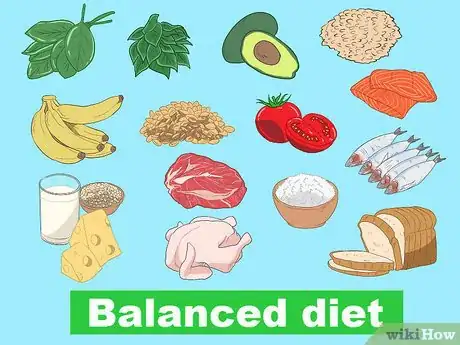

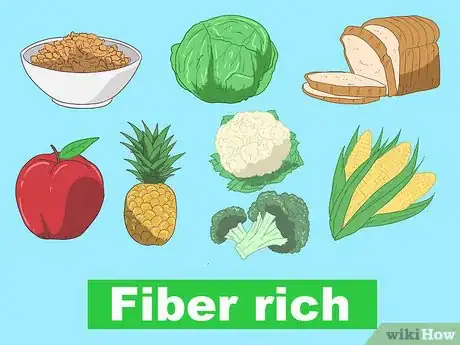
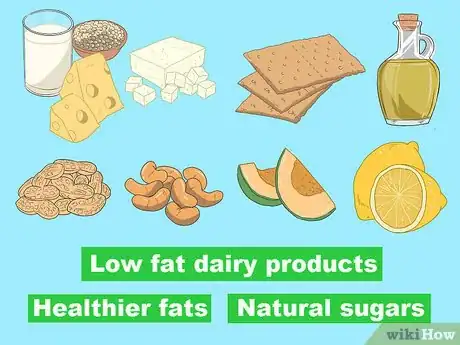
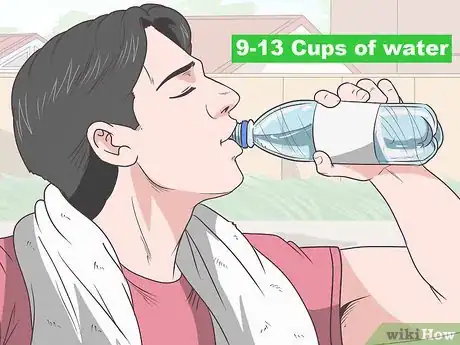
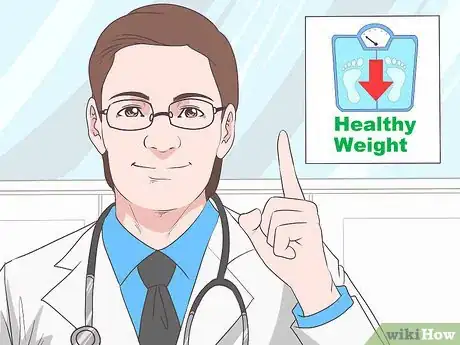
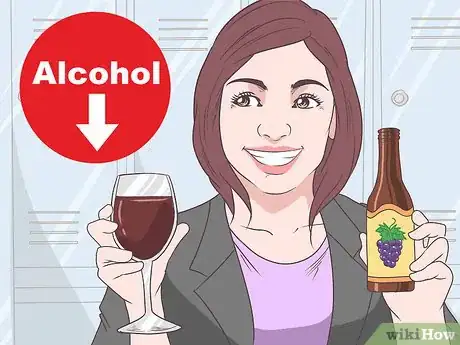
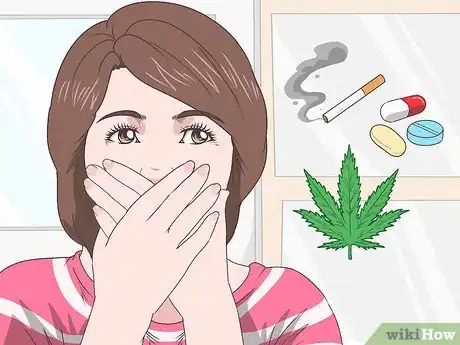
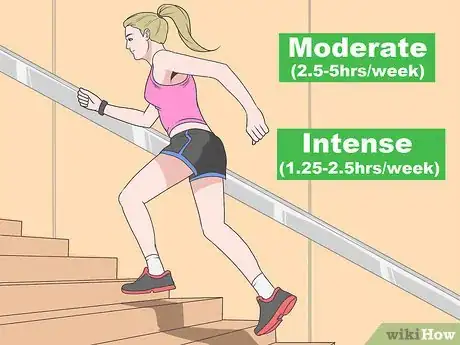
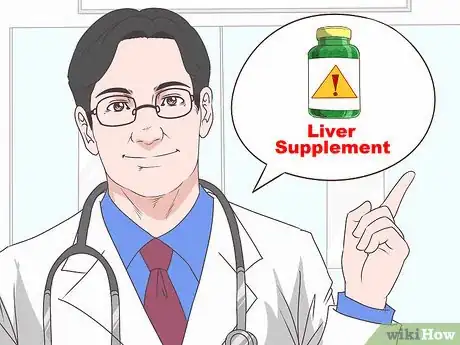
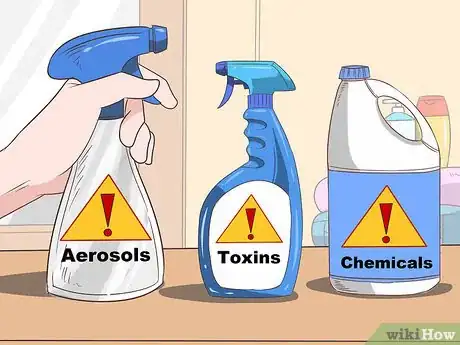
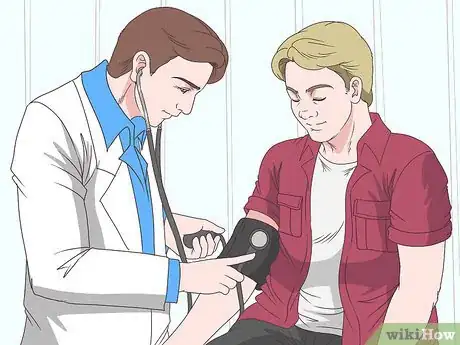
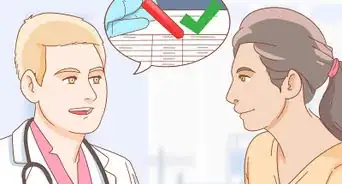
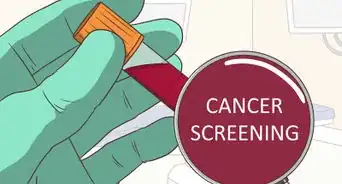
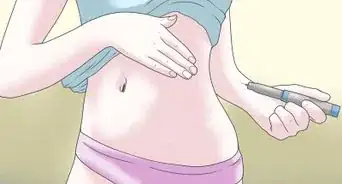
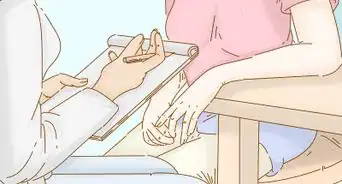


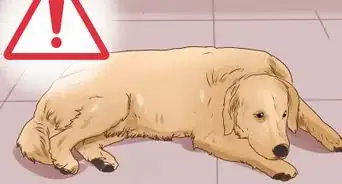
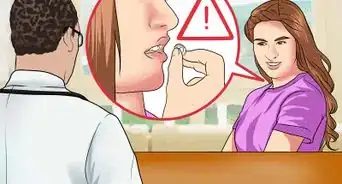

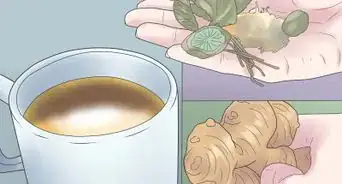

-Step-16.webp)

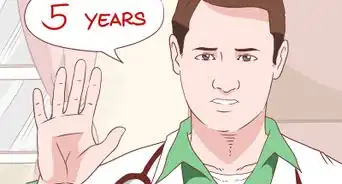







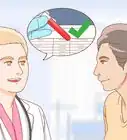
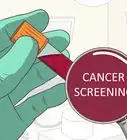





































Medical Disclaimer
The content of this article is not intended to be a substitute for professional medical advice, examination, diagnosis, or treatment. You should always contact your doctor or other qualified healthcare professional before starting, changing, or stopping any kind of health treatment.
Read More...